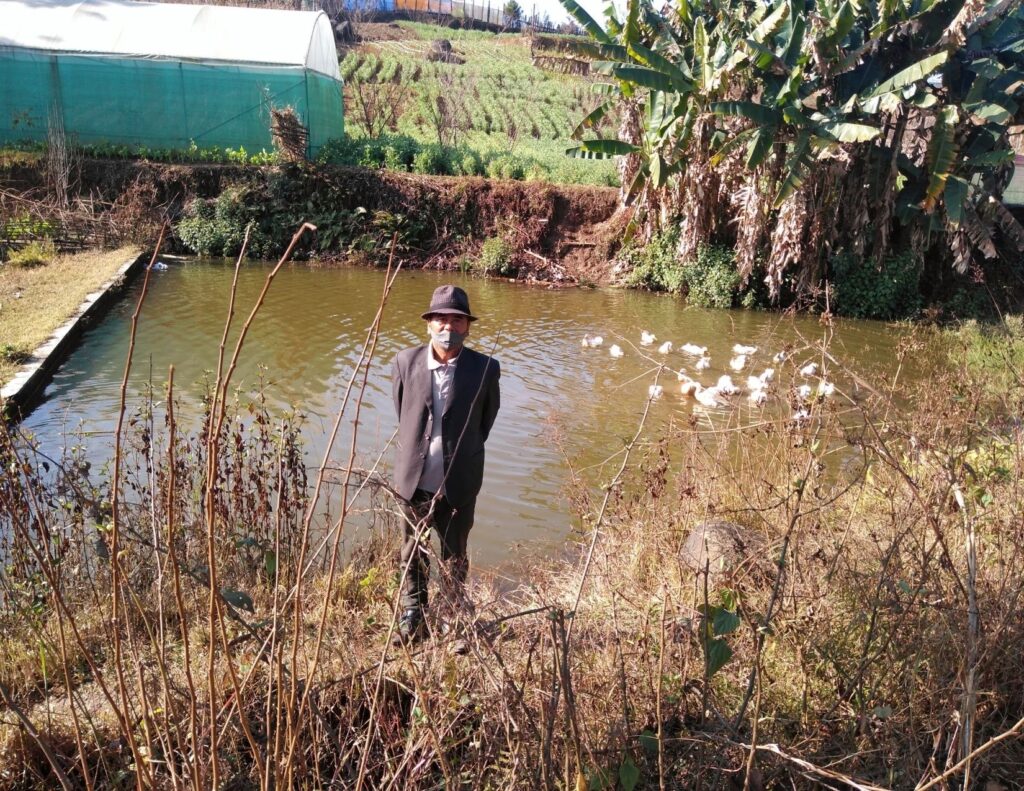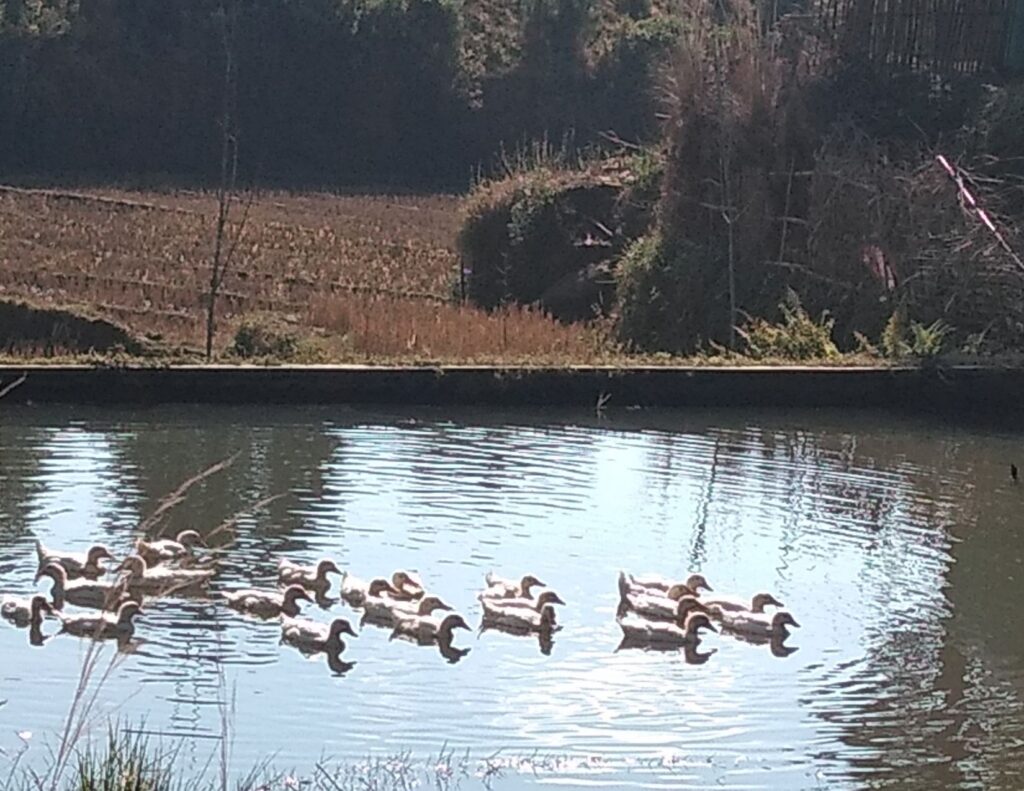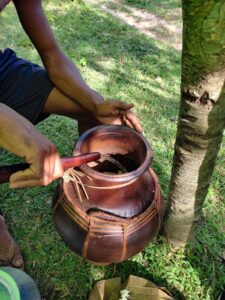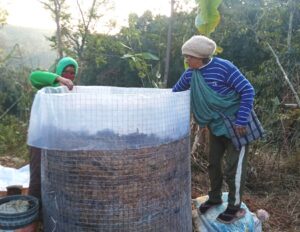Ever since mankind started practicing agriculture, many animals have been used to assist farmers in tilling, sowing, and harvesting crops from the farm. However, in the small village of Mawkamoit Dongpdeng in West Khasi Hills, a custodian farmer is becoming the talk of the village for using his team of 20 ducks to act as pest sentries in his farm.
Bah Grossful, a 54 year old custodian farmer who has been cultivating paddy and potatoes since 2003 started rearing 20 ducks over a year ago. While his original plan had been to rear them for their eggs, the ducks have turned out to be quite the jackpot deal for Bah Grossful. Apart from providing plenty of eggs for him and his family, the ducks have also helped increase their crop yield in the past year by controlling various pests in the fields. The trick, he says, is to let the ducks go around the fields as soon as he has plowed them.

“After tilling the land, I let the ducks go around the field or garden so that they can eat and kill all the pests and insects. I do the same thing before I sow the seeds.” Bah Grossful said.
This simple yet effective practice has helped Bah Grossful get rid of the looper (niangtda) pest that often disturbs potatoes during the flowering season. The ducks have also helped contain the notorious rice leaffolder pest that wreaks havoc on paddy fields simply by feeding on them. This ultimately makes the use of harmful chemical insecticides and pesticides in the paddy fields redundant. “The simple method of pest management I have adopted is safe and secure for both the crop as well as for anyone who will consume these crops.” he shared. For Bah Grossful, the perks of rearing ducks doesn’t end there either as the waste of ducks are excellent materials for organic compost that can be used as manures in the field. “The presence of ducks and their waste also helps ward any kind of flu/plagues away from the farmstead”, he said.

Having reaped the benefits of rearing ducks in his farm, Bah Grossful advocates to his fellow farmers to take up rearing of livestock in their farmsteads. This, he says, will increase crop yield as well as minimize environmental impacts that come from using chemical fertilizers. Bah Grossful believes that the use of chemical fertilizers in farming can be stopped if farmers went back to the traditional and organic methods of farming which in turn would benefit the health of the people as well as the environment.
“Moreover, we need to respect the various animals and bird species as well as the bees that play a significant role in the farming system. We must not kill them, instead we have to love and respect them for what they do.” Bah Grossful concluded.
Bah Grossful Pariong is an Agroecology Learning Circle (ALC) member under the NESFAS project “Empowering Indigenous Communities through Agroecology Learning Circles (ALCs) for resilient, integrated and innovative natural resource management.” Supported by MBMA and funded by the World Bank.





